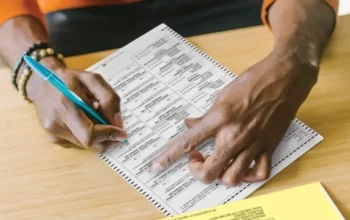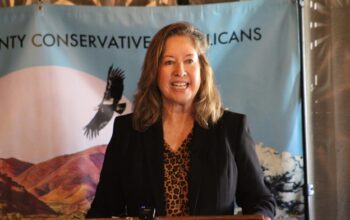The Mayor of San Jose wants to protect sections of his town from the homeless. The rest of the City will become a homeless slum.
“San Jose’s mayor has faced criticism for his plan to ban homeless residents from setting up camp in certain parts of the city, but he believes it’s only because people don’t fully understand it.
As part of his March budget message, Mayor Matt Mahan asked the city to explore enacting no encampment zones, which would prohibit homeless camps in neighborhoods and economic hubs like downtown. The idea is still in the planning stages, but could come to fruition in January if the city meets some of its other housing and homeless service goals by the end of the year.
Another Progressive Democrat protecting the rich business people—who finance his camapigns and punish the rest of us.
San Jose mayor proposes homeless ban in parts of city

by Jana Kadah, San Jose Spotlight, 4/12/23
San Jose’s mayor has faced criticism for his plan to ban homeless residents from setting up camp in certain parts of the city, but he believes it’s only because people don’t fully understand it.
As part of his March budget message, Mayor Matt Mahan asked the city to explore enacting no encampment zones, which would prohibit homeless camps in neighborhoods and economic hubs like downtown. The idea is still in the planning stages, but could come to fruition in January if the city meets some of its other housing and homeless service goals by the end of the year.
While it has support from residents frustrated by street homelessness, homeless advocates claim no encampment zones would criminalize unhoused people who have nowhere else to go. But Mahan disagrees.
“I do not believe in criminalizing people for being homeless. Five thousand people sleeping on our streets and along our waterways is not a crime—it’s a humanitarian crisis,” Mahan told San José Spotlight. “The sequencing (for my plan) is critically important.”
Under Mahan’s plan, unhoused residents would not be fined or jailed for being in no encampment zones, he said. Rather, mental health professionals and police officers would make contact with these residents and instruct them to leave the area. Mahan said they’d be given housing options—and he wouldn’t unroll his plan until there’s more housing for the homeless.
“Incarcerating someone is more expensive than providing them housing. It just doesn’t make sense,” Mahan said. “(Instead), we will reduce and ultimately eliminate encampments by providing safe, dignified alternatives that can connect our unsheltered community with basic support services.”
Homelessness isn’t a crime
However, Sandy Perry, president of the Affordable Housing Network of Santa Clara County, said at best Mahan is naively optimistic—and at worst, intentionally misleading. Unhoused residents have been arrested for trespassing if they refuse to leave an area the city is sweeping or prohibits encampments.
“What happens when a homeless person refuses to leave the second time, or the third time?” Perry told San José Spotlight. “They will be arrested—which is criminalization.”
Perry said Mahan’s proposal builds on existing setbacks that prohibit people from setting up tents, structures and personal belongings within 150 feet of schools, and from blocking sidewalks, streets and trails.
The Silicon Valley Law Foundation argues those existing setbacks violate constitutional law—specifically through the case of Martin v. Boise. The case, which began in 2009 and was resolved in 2019, ruled that governments cannot criminalize homelessness when they don’t have enough shelter space available or without first providing housing or shelter to unhoused people.
“It would force people experiencing homelessness out of where they are currently living and cause those people to lose not only their homes but their sense of security,” Silicon Valley Law Foundation executives wrote in a letter to the council in March. “This would be cruel and unusual punishment as they would have nowhere to go due to the lack of available shelter space.”
San Jose has more than 4,000 homeless people living on the streets and more than 6,500 homeless people total, according to a recent count. San Jose prevented 2,483 people from falling into homelessness and helped 4,824 people find housing last year, but more people are falling into homelessness faster than the city can house them.
Mahan said no encampment zones wouldn’t be implemented until San Jose has enough alternative housing solutions. To the mayor, that means 1,000 new housing alternatives—like interim housing beds, hotels or motels or rent support. He said offering housing alternatives to unhoused residents prevents repeat encampment sweeps.
Councilmember Sergio Jimenez, who has represented South San Jose for almost seven years, said that may be wishful thinking.
“If the past is instructive, I would say it’s unlikely we do it that quickly,” Jimenez told San José Spotlight. “There’s just a lot of s–t we need to wade through, whether it be funding, pushback from the community or councilmembers who don’t want to do it.”
Jimenez isn’t entirely against the idea, and said if there are enough beds, then homeless residents should be moved off streets.
“If we have enough beds or spaces, then it gives us, if you will, the moral high ground to then move and say, ‘You can’t be here,’” Jimenez said. “I just don’t know what that magic number is.”
Todd Langton of Agape Silicon Valley, a nonprofit that provides food and clothes to homeless people, said there should be at least 2,000 to 3,000 homes or beds available before establishing no encampment zones.
“The devil is in the details,” Langton told San José Spotlight. “You can’t mandate people and you can’t sweep them until we have enough places for people to go. When we do, we can talk about this idea.”



